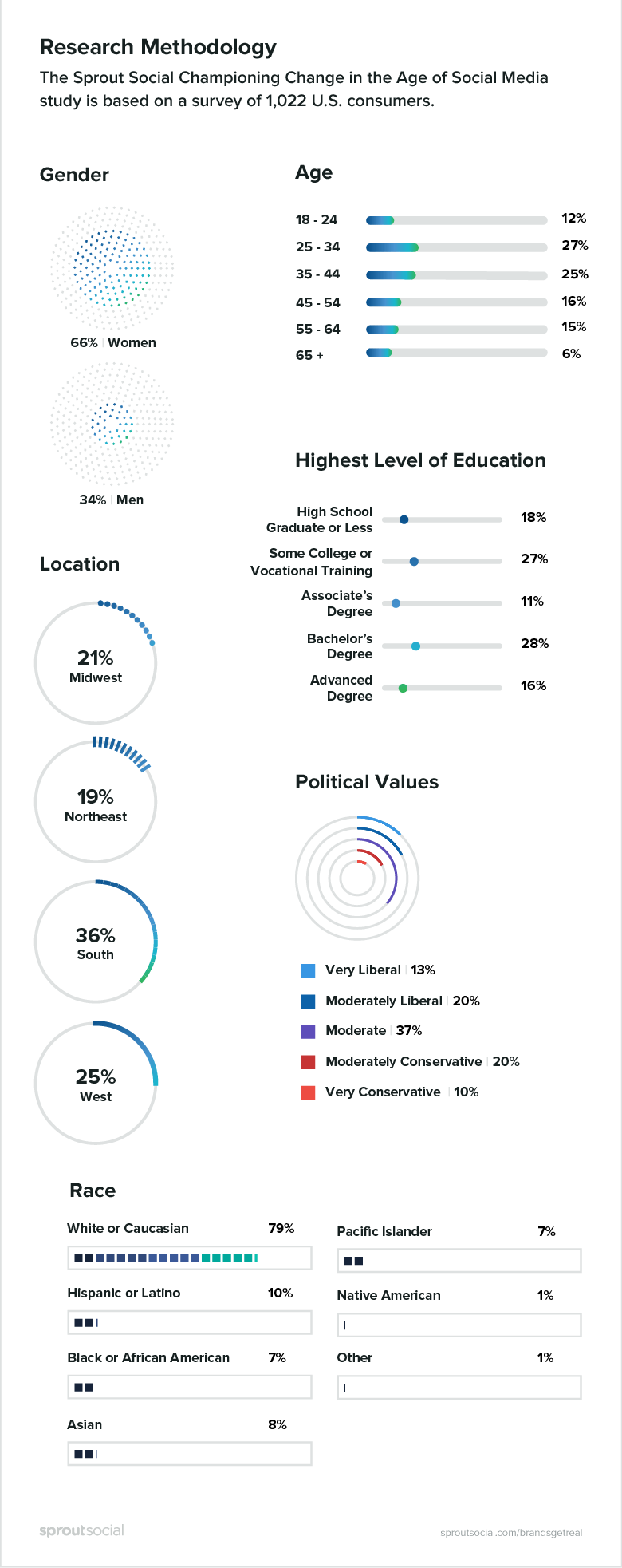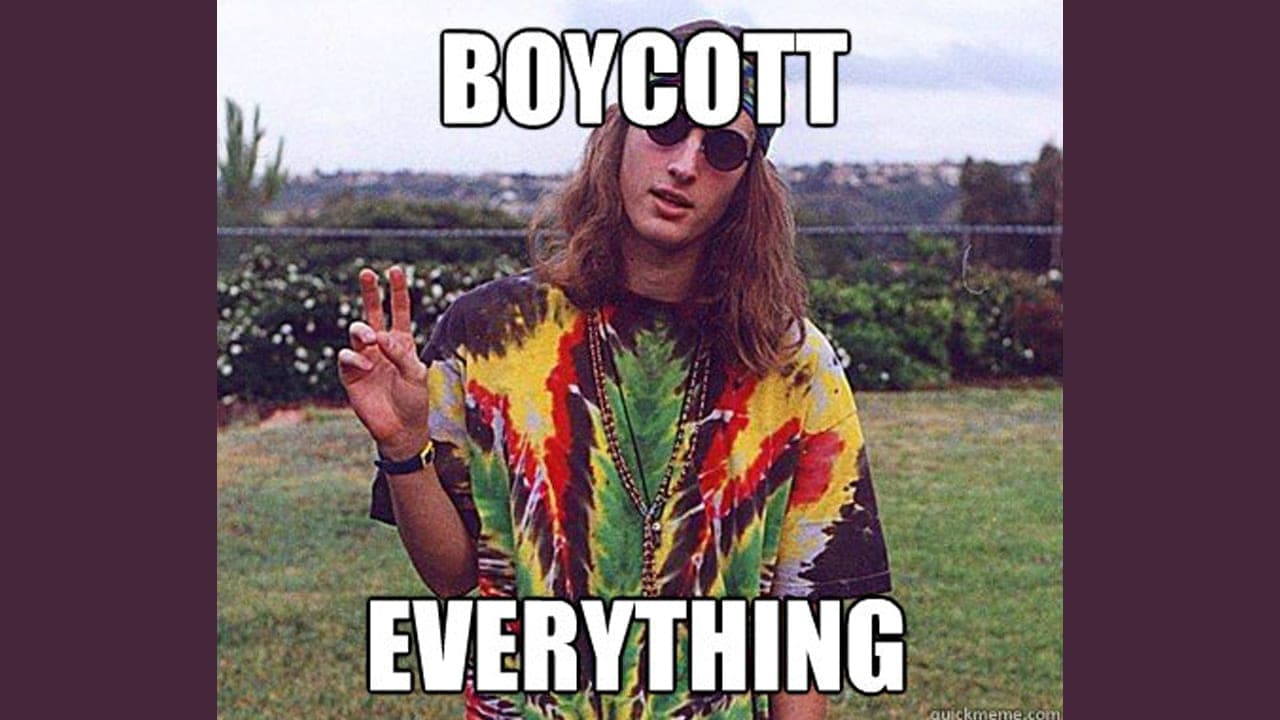In November 2017, Adweek published a piece by Molly DeWolf Swenson titled, ‘Why It’s Critical Brands Take a Stand on Tough Social Issues.’ The premise of the piece is that marketers “must have courage” when it comes to taking positions on controversial issues.
In the piece, DeWolf Swenson claims “Brands cannot expect to play Switzerland as the rest of the world picks a side.” Additionally, she uses data from Social Sprout’s #BrandsGetReal survey to claim, “consumers want the companies they support to harness their power for good, not lay back and let injustices happen.” DeWolf Swenson then goes on to voice her political opinions and explain why companies should do the same. Next, she promotes her company which pairs brands with stories that promote – you guessed it – “taking a side” on social issues. Finally, after reading her examples, it’s clear that by saying “social issues,” she’s referring to political issues.
Now, I’m going to explain why it’s essential for small business owners to “play Switzerland” and avoid following the Adweek piece’s advice.
The Claim
DeWolf Swenson’s claim that, “Consumers want the companies they support to harness their power for good, not lay back and let injustices happen” is misleading and not 100% factual. Let’s break the statement down – then ask some questions.
“Consumers want” – Which consumers? Most consumers? Some consumers? All Consumers?
“the companies they support” – Other than Apple during the Steve Jobs days, who supports a company just to support a company? Don’t most consumers purchase products and services based on quality, price and reliability?
“to harness their power for good” – What is good? Why should companies harness their “power” to promote political issues? Should “powerful” companies really tell people what “side” of a polarizing issue they should agree with? In a politically-polarized environment such as the US, one consumer’s “good” is another consumer’s “evil.”
“not lay back and let injustices happen.” – What injustices? Some people think, “injustice” takes place when other people disagree with them. I can safely guess that 9 times out of 10, one consumer’s “injustice” is another’s “justice.”
Molly DeWolf Swenson does not address these questions. Luckily, we have enough of Sprout Social’s data available to help us dive deeper into the subject.
The Data
The sample is the most important thing to consider when determining the accuracy of a poll or survey. Sprout surveyed 1022 consumers. The poll was conducted online in September of 2017 and has 3% margin of error.

Image: Sprout Social
Key Stats:
Gender:
66% Women
33% Men
Political Values:
13% Very Liberal
20% Moderately Liberal
37% Moderate
20% Moderately Conservative
10% Very Conservative
According to Sprout Social, “Eighty-two percent of liberals feel brands are credible to take a stand on social media, compared to just 46% of conservatives.” They go on to claim, “As with respondents overall, brands have more rewards to gain from sharing stances with like-minded consumers, regardless of political affiliation, than they do risks in turning off the opposition.”
My question to Sprout: Your poll asked mostly liberal women if brands should accept their beliefs and promote them. How can you possibly assume that brands have more to gain by pissing off half of the country? Your own data does not even support this claim.
A quick look at the 2016 election results can quickly prove my point:
When combined, conservative-leaning candidates, Donald Trump and Gary Johnson received 67,474,369 votes compared to liberal-leaning candidates, Hillary Clinton and Jill Stein who received 67,310,878 votes. That’s pretty much 50/50.
Additionally, according to CNN, Clinton won the votes of most college-educated women. Guess who Social Sprout sampled the most? You guessed it. College-educated women. Here we have an example of how a poll can be used to push a desired narrative even if the poll’s own data does not reflect said narrative.
Now, to Sprout Social’s credit, women do drive the majority of purchasing decisions. There is no arguing that. Maybe this justifies sampling 66% women. Maybe it does not. Do men drive the majority of purchasing decisions when it comes to trucks or power tools? I honestly do not know but would be willing to guess the answer is “yes.” The real question here is “should brands take sides on political issues?”
My Conclusion: Brands Should Avoid Taking a Stand on Social Issues
I do not see a benefit to it and the data does not either. Sprout Social’s survey is flawed. They manufactured a narrative that DeWolf Swenson was more than happy to use in order to promote her company.
Here’s the truth. The country is divided. If people on one side of an issue are louder than another, it does not mean they represent the majority. In fact, Social Sprout’s large sampling of “moderates” tells me that people who take stands on divisive issues represent less than half. To drive the point home, I’d like to recognize that Harvard says it’s only 38%.
Can you imagine taking your marketing plan to a bank and telling them that you intend to exclude over 50% of the potential market? If you disagree with me, I urge you to try it. Take your marketing plan to the bank and please come back to tell me how it went. 🙂
I’d like to end with a few examples of brands who probably should have “played Switzerland.”
Most recently, advertisers on both FOX and MSNBC got pulled into something that had nothing to do with their companies.
It’s time to stop the madness and I’d go as far as to say brands taking sides does nothing but dump jet fuel onto an already-burning wildfire. I’d probably even urge you to “harness your power” to #resist attaching politics to your brands.

Dustin Templeton is a digital marketing veteran and SMB consultant who works with business owners and entrepreneurs to maximize productivity and grow sales from the internet. Read his full bio here.







